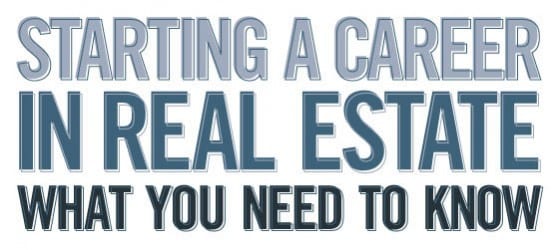
It can take as long as 50 days to obtain an Iowa real estate license. A background check is the biggest hurdle. If you start early, you'll have enough time to complete other steps. In the end, you should have your license in five to six weeks. The license will allow you to begin selling real estate. Here are some tips if you're looking for an Iowa license.
A 96-hour course
The 96-hour real estate license course in the state of Iowa is designed to prepare students for the state exam. A typical course will include a 60-hour course in pre-licensing, three 12-hour courses on Buying and Listing Practices, and a course about Developing Professionalism and Ethics. The state exam will be taken after completion of these courses. The course also requires that students pass a background screening and purchase Errors and Omissions Insurance. The course typically takes two to three months.
After completing the course you are eligible for the Iowa test. The test consists of two sections: one general and one state-specific. The test takes 180 minutes and has 120 questions. 56 of the 80 questions need to be answered correctly for you to pass.
Criminal background checks
Before you can apply for a real estate license in Iowa, you must pass a criminal background check. This guide will help you make the process a little easier. It applies to brokers and salespersons who are applying for a new license.

Iowa's real estate agents require that you have completed a comprehensive education program and passed a criminal background check. The state requires you to complete 96 hours. Of these 60 hours can easily be completed online while the remaining 48 hours must still be taken in person.
Requirements of a real estate license in Iowa
Iowa has two sections for real estate license applications. You need to pass both the Iowa and national sections. To qualify, you must score at least 75 on both the state and national sections. Once you pass the exam you will be sent an application for a real estate license with a score sheet. If you fail the exam you will receive a diagnosis report that identifies your weaknesses.
Your next step is joining a brokerage. These brokerages can help with licensing and can provide training. These companies can also help with administrative and marketing tasks, which can speed up your workflow.
Cost of courses
There are several options available for Iowa real estate license courses. You have two options: a traditional classroom setting, or a virtual one. Some courses offer live instructors while others are more interactive and cost-effective. Online courses may offer live exam preparation and instructor Q&A. A few real estate license courses offer career tools like real-estate e-books.
Iowa real estate license courses cost $271. That includes exam fees. There's also a $51 application fee and fingerprint fee. In addition, the state requires all licensed real estate professionals to get a background check done. This is usually done through the Iowa Real Estate Commission, and it takes three to six weeks to process the report.

There are many options for online courses
There are many online courses that offer real estate licenses. Some offer prelicensing courses, while others provide continuing education. Online courses in real estate licensing are typically cheaper than those that are taught in person. Some have videos to supplement the classroom experience. These are excellent options for continuing education or upgrading your license.
Another advantage of online real estate licensing courses is their flexibility. These courses are available at any hour you choose. This is perfect for busy individuals. Online courses can be broken down and covered over a longer period of times.
FAQ
What are some of the disadvantages of a fixed mortgage rate?
Fixed-rate mortgages have lower initial costs than adjustable rates. If you decide to sell your house before the term ends, the difference between the sale price of your home and the outstanding balance could result in a significant loss.
What should you look for in an agent who is a mortgage lender?
A mortgage broker helps people who don't qualify for traditional mortgages. They compare deals from different lenders in order to find the best deal for their clients. Some brokers charge a fee for this service. Others offer no cost services.
Do I need flood insurance?
Flood Insurance protects from flood-related damage. Flood insurance can protect your belongings as well as your mortgage payments. Learn more about flood coverage here.
How much should I save before I buy a home?
It all depends on how many years you plan to remain there. Save now if the goal is to stay for at most five years. If you plan to move in two years, you don't need to worry as much.
What is the maximum number of times I can refinance my mortgage?
It depends on whether you're refinancing with another lender, or using a broker to help you find a mortgage. In either case, you can usually refinance once every five years.
How can I eliminate termites & other insects?
Over time, termites and other pests can take over your home. They can cause serious damage to wood structures like decks or furniture. To prevent this from happening, make sure to hire a professional pest control company to inspect your home regularly.
Statistics
- It's possible to get approved for an FHA loan with a credit score as low as 580 and a down payment of 3.5% or a credit score as low as 500 and a 10% down payment.5 Specialty mortgage loans are loans that don't fit into the conventional or FHA loan categories. (investopedia.com)
- This means that all of your housing-related expenses each month do not exceed 43% of your monthly income. (fortunebuilders.com)
- Based on your credit scores and other financial details, your lender offers you a 3.5% interest rate on loan. (investopedia.com)
- The FHA sets its desirable debt-to-income ratio at 43%. (fortunebuilders.com)
- When it came to buying a home in 2015, experts predicted that mortgage rates would surpass five percent, yet interest rates remained below four percent. (fortunebuilders.com)
External Links
How To
How to locate an apartment
Moving to a new place is only the beginning. This takes planning and research. This involves researching and planning for the best neighborhood. There are many ways to do this, but some are easier than others. The following steps should be considered before renting an apartment.
-
Data can be collected offline or online for research into neighborhoods. Online resources include Yelp. Zillow. Trulia. Realtor.com. Other sources of information include local newspapers, landlords, agents in real estate, friends, neighbors and social media.
-
Find out what other people think about the area. Review sites like Yelp, TripAdvisor, and Amazon have detailed reviews of apartments and houses. You can also find local newspapers and visit your local library.
-
Call the local residents to find out more about the area. Talk to those who have lived there. Ask them what they liked and didn't like about the place. Ask for their recommendations for places to live.
-
Consider the rent prices in the areas you're interested in. Consider renting somewhere that is less expensive if food is your main concern. If you are looking to spend a lot on entertainment, then consider moving to a more expensive area.
-
Learn more about the apartment community you are interested in. For example, how big is it? What price is it? Is it pet friendly What amenities does it offer? Do you need parking, or can you park nearby? Are there any rules for tenants?